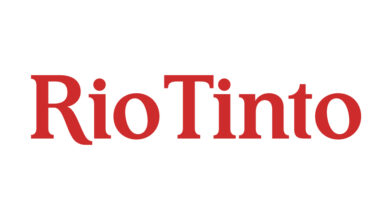Accenture Acquires Edenhouse, Boosting SAP Cloud Capabilities and Leadership in the UK
LONDON–(BUSINESS WIRE)–Accenture (NYSE: ACN) has acquired Edenhouse, a UK-based independent SAP partner. The acquisition will further enhance Accenture’s capabilities to support clients in their digital transformation journey. Terms of the acquisition were not disclosed.
Founded in 2008 and an SAP platinum partner, Edenhouse specializes in the sale, implementation, support, and hosting of SAP products and services to mid-sized businesses. Edenhouse’s SAP specialists have a broad breadth of technical knowledge, coupled with deep industry and line of business experience — spanning on-premise and cloud-based solutions — to help clients unleash the full power of SAP solutions and get increased value from their investments. Edenhouse has won a number of awards since its inception, the most recent being the SAP EMEA North Award for Partner Excellence 2021 for Top SME Cloud Performer.
“Now that Edenhouse is part of Accenture, we’re in an even stronger position in the UK to help our clients harness change and accelerate their transformational journeys,” said John Erik Ellingsen, Intelligent Platform Services Lead for the UK and Ireland at Accenture. “The global pandemic has increased demand for SAP’s cloud-based solutions and the additional skills we now have access to will enable us to rapidly meet the needs of our clients, helping them to progress more quickly on their path to value and become more sustainable businesses for the future.”
The acquisition will scale Accenture’s capabilities in the UK to address accelerated demand for SAP’s cloud-based solutions. Edenhouse’s team of 220 professionals will join Accenture’s SAP Business Group in the UK to support the local business while benefiting from access to global resources and skills.
Paul Solomon, CEO at Edenhouse said, “Together, Accenture and Edenhouse are a great fit. Being part of Accenture will provide amazing opportunities for our staff and our clients. We have similar shared values, including putting business outcomes at the heart of everything we do to deliver 360° value for clients and leveraging our deep relationships with SAP. We’re excited to be able to bring the combination of our people, technology and industry excellence to take digital transformation to the next level for our clients.”
Mukul Dixit, SAP Business Group Lead for the UK and Ireland at Accenture added: “By teaming with Edenhouse we will broaden the depth of our SAP capabilities to serve our large and mid-sized clients on their next phase of growth and transformation, and cement our leadership position in the UK market. I’m excited by the possibilities that this acquisition opens up for our clients through our combined SAP expertise coupled with Accenture’s deep industry knowledge, end-to-end transformational capabilities and global reach.”
In October 2020, Accenture also acquired New Zealand-based SAP and cloud solutions technology firm Zag. The acquisition bolsters Accenture’s New Zealand and Australian digital transformation capabilities to meet increased demand from organizations migrating to the cloud and SAP’s next-generation products.
About Accenture
Accenture is a global professional services company with leading capabilities in digital, cloud and security. Combining unmatched experience and specialized skills across more than 40 industries, we offer Strategy and Consulting, Interactive, Technology and Operations services — all powered by the world’s largest network of Advanced Technology and Intelligent Operations centers. Our 514,000 people deliver on the promise of technology and human ingenuity every day, serving clients in more than 120 countries. We embrace the power of change to create value and shared success for our clients, people, shareholders, partners and communities. Visit us at www.accenture.com.
Forward-Looking Statements
Except for the historical information and discussions contained herein, statements in this news release may constitute forward-looking statements within the meaning of the Private Securities Litigation Reform Act of 1995. Words such as “may,” “will,” “should,” “likely,” “anticipates,” “expects,” “intends,” “plans,” “projects,” “believes,” “estimates,” “positioned,” “outlook” and similar expressions are used to identify these forward-looking statements. These statements involve a number of risks, uncertainties and other factors that could cause actual results to differ materially from those expressed or implied. Many of the following risks, uncertainties and other factors identified below are, and will be, amplified by the COVID-19 pandemic. These risks include, without limitation, risks that: the transaction might not achieve the anticipated benefits for Accenture; Accenture’s results of operations have been significantly adversely affected and could in the future be materially adversely impacted by the COVID-19 pandemic; Accenture’s results of operations have been, and may in the future be, adversely affected by volatile, negative or uncertain economic and political conditions and the effects of these conditions on the company’s clients’ businesses and levels of business activity; Accenture’s business depends on generating and maintaining ongoing, profitable client demand for the company’s services and solutions including through the adaptation and expansion of its services and solutions in response to ongoing changes in technology and offerings, and a significant reduction in such demand or an inability to respond to the evolving technological environment could materially affect the company’s results of operations; if Accenture is unable to keep its supply of skills and resources in balance with client demand around the world and attract and retain professionals with strong leadership skills, the company’s business, the utilization rate of the company’s professionals and the company’s results of operations may be materially adversely affected; Accenture could face legal, reputational and financial risks if the company fails to protect client and/or company data from security incidents or cyberattacks; the markets in which Accenture operates are highly competitive, and Accenture might not be able to compete effectively; Accenture’s profitability could materially suffer if the company is unable to obtain favorable pricing for its services and solutions, if the company is unable to remain competitive, if its cost-management strategies are unsuccessful or if it experiences delivery inefficiencies or fail to satisfy certain agreed-upon targets or specific service levels; changes in Accenture’s level of taxes, as well as audits, investigations and tax proceedings, or changes in tax laws or in their interpretation or enforcement, could have a material adverse effect on the company’s effective tax rate, results of operations, cash flows and financial condition; Accenture’s ability to attract and retain business and employees may depend on its reputation in the marketplace; as a result of Accenture’s geographically diverse operations and its growth strategy to continue to expand in its key markets around the world, the company is more susceptible to certain risks; Accenture’s business could be materially adversely affected if the company incurs legal liability; Accenture’s work with government clients exposes the company to additional risks inherent in the government contracting environment; Accenture’s results of operations could be materially adversely affected by fluctuations in foreign currency exchange rates; if Accenture is unable to manage the organizational challenges associated with its size, the company might be unable to achieve its business objectives; if Accenture does not successfully manage and develop its relationships with key alliance partners or fails to anticipate and establish new alliances in new technologies, the company’s results of operations could be adversely affected; Accenture might not be successful at acquiring, investing in or integrating businesses, entering into joint ventures or divesting businesses; if Accenture is unable to protect or enforce its intellectual property rights or if Accenture’s services or solutions infringe upon the intellectual property rights of others or the company loses its ability to utilize the intellectual property of others, its business could be adversely affected; Accenture’s results of operations and share price could be adversely affected if it is unable to maintain effective internal controls; changes to accounting standards or in the estimates and assumptions Accenture makes in connection with the preparation of its consolidated financial statements could adversely affect its financial results; Accenture might be unable to access additional capital on favorable terms or at all and if the company raises equity capital, it may dilute its shareholders’ ownership interest in the company; Accenture may be subject to criticism and negative publicity related to its incorporation in Ireland; as well as the risks, uncertainties and other factors discussed under the “Risk Factors” heading in Accenture plc’s most recent Annual Report on Form 10-K and other documents filed with or furnished to the Securities and Exchange Commission. Statements in this news release speak only as of the date they were made, and Accenture undertakes no duty to update any forward-looking statements made in this news release or to conform such statements to actual results or changes in Accenture’s expectations.
Contacts
Molly McDonagh
+44 7825 023 622
[email protected]
Julie Bennink
+1 312 693 7301
[email protected]




